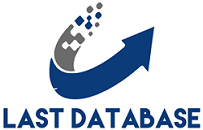For much of history, finding a phone number was a physical endeavor. In the 18th century, city directories listed residents with their addresses – precursors to phone directories. The invention of the telephone in the late 19th century necessitated dedicated phone books. These hefty tomes, often delivered free to homes, became a ubiquitous symbol of communication.
Imagine the scene: flipping through the yellowed pages, fingers tracing names, a satisfied sigh upon finding the sought-after number. Phone directories fostered a sense of Brazil Phone Number community, listing not just individuals but also businesses and organizations. They were a snapshot of a local landscape, a physical manifestation of the web of connections within a town or city.
The rise of the internet brought a digital revolution to phone number lookups. Online directories emerged, offering a faster and more efficient way to search. Search engines like Google became a one-stop shop, indexing not just websites but also phone numbers. The convenience factor skyrocketed – no more flipping through pages, just a few keystrokes and the number was yours.
However, online directories presented new challenges. Accuracy became a concern, with outdated listings creating frustration. Privacy issues also arose, with some individuals wanting to opt-out of having their numbers readily available online.
The story doesn't end there. Mobile phones, with their built-in contact lists and integrated search features, further transformed the way we find numbers. Today, most people have an extensive digital network stored in their pockets, readily accessible with a few taps.

But the death of the traditional phone book has been greatly exaggerated. While their usage has undoubtedly declined, physical directories still hold a niche value. They offer an offline solution, particularly useful in emergencies or areas with limited internet access. Additionally, for those who enjoy the tactile experience or find online interfaces overwhelming, phone books remain a valuable tool.
Looking up a phone number has become a multifaceted experience. We have a spectrum of options, from the physical comfort of a phone book to the instant gratification of a search engine. This evolution reflects the changing nature of communication itself. We are connected through a complex web of technologies, each offering its own advantages and drawbacks.
The future of looking up phone numbers remains to be seen. With the rise of voice assistants and voice-activated interfaces, searches might soon become completely hands-free and even conversational. ("Hey assistant, find me the number for the nearest pizza place.")
However, one thing is certain: the need to connect with others will always be a driving force. As technology continues to evolve, the way we find phone numbers will most likely adapt. But the underlying purpose – to reach out, to share information, to build relationships – will remain a constant throughout this ever-evolving story.


